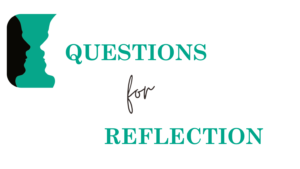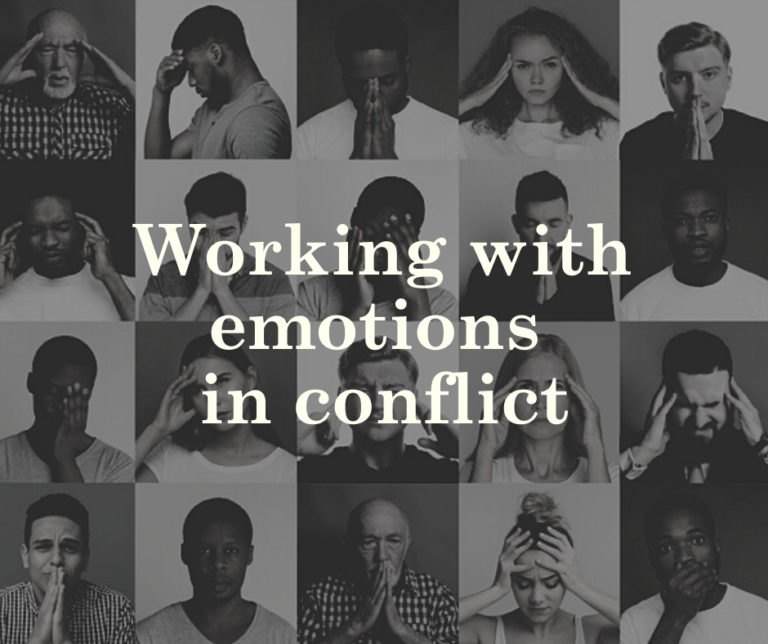Empathy and compassion fatigue exists across a diverse range of professionals, particularly those who deal with clients who are experiencing strong emotions. Practitioners who work with people in conflict are no stranger to strong emotions, particularly those that are considered “negative” such as anger and frustration. It is important that conflict practitioners are aware of the risks of empathy and compassion fatigue, and that they have strategies in place to ensure their own wellbeing while working in emotionally stressful situations.

What are empathy and compassion fatigue?

Empathy fatigue is when a person suffers from vicariously identifying with another’s emotions. In other words, when a practitioner is empathetic towards a client, part of that empathy experience is feeling what the other person feels. When a practitioner frequently feels strong negative emotions through emotional transfer from their clients, this can have a negative impact on the practitioner’s wellbeing.
Compassion fatigue is a type of secondary traumatic stress disorder. It differs from empathy fatigue because as well as experiencing the negative impacts from emotion transfer of clients’ strong emotions, the practitioner also finds themselves less able to care and help their clients.
In some ways, both empathy and compassion fatigue are defence mechanisms that signal to the person experiencing them that they need to step back and care for themselves, before re-engaging in trying to help others.
What is the impact of empathy and compassion fatigue?
Both empathy and compassion fatigue can lead to feelings of numbness or distancing, and difficulty continuing to care. The practitioner may feel overwhelmed, powerless or hopeless. They may no longer be able to relate to others and may even isolate from others as a result. This may mean avoiding clients (not answering phone calls or emails) or avoiding people in general (including friends and family). Practitioners may feel a range of negative emotions, including feeling angry, sad, depressed, tense, or agitated. Practitioners may engage in self-blame or reduced confidence in their own abilities. They may feel unable to respond appropriately to what’s happening around them (professionally and personally).
This not only leads to the practitioner being unable to effectively support others in conflict, it can also lead to the practitioner not being able to manage their own conflict and everyday social interactions.
These psychological impacts can also lead to physical symptoms including headaches, upset stomach, difficulty sleeping, changes in appetite, and feeling exhausted all the time.
Who is most at risk?
People who work with clients who experience strong emotions are most at risk of developing empathy or compassion fatigue. Practitioners who have low self-awareness and emotional agility are particularly at risk as they do not notice the warning signs or have strategies to manage the consequences of emotional contagion.
Practitioners who are not good at setting boundaries are also at high risk. Boundaries are important to ensure that practitioners have time and space to regulate their emotions.
Practitioners who are under personal stress (from things like personal conflict, grief or illness) are also vulnerable, because their resilience levels are already lower.
What are some strategies for avoiding empathy or compassion fatigue?
The best strategy is to develop emotional agility. This includes having the capacity to be aware when your emotional engagement with clients is negatively impacting on your own wellbeing, and the ability to use a range of personal emotion regulation strategies.
Setting effective boundaries is also essential. Practitioners need to manage their workload to ensure that they have time to regulate. It is also important to have a clear transition from work to home life, so that you don’t take clients’ negative emotions home with you each day.
Basic self-care strategies are also important. Ensure that you are maintaining your physical health (eating well, getting enough exercise and sleep). Professional support is fundamentally important for practitioners working in emotional environments. This should include something like supervision, participation in a reflective practice group, or peer debriefing. Having a chance to work through your emotions with a professional who understands the context in which you work is incredibly useful. And don’t forget social support. Having a strong network of family or friends who you can engage with regularly is an invaluable resource.

- Have you experienced empathy or compassion fatigue?
- If so, what do you think were the main conditions that led to that experience?
- What kinds of things do you have in place to help you to avoid empathy and compassion fatigue?
- What else could you do to support yourself to develop emotional agility and effective boundaries?
Want to know more?

In our online course Working With Emotions in Conflict, we have a module on the practitioner’s emotions. It covers compassion and empathy fatigue, and provides practitioners with a range of tools and strategies to work with their own emotions when working with others in conflict. Find out more about the course here.
Also, if you are looking for a community of conflict practitioners who can support you in your professional wellbeing (one of the essential ways to take care of your emotional wellbeing in the work that we do), you should check out our Conflict Leadership Program. Find out more about that here.

